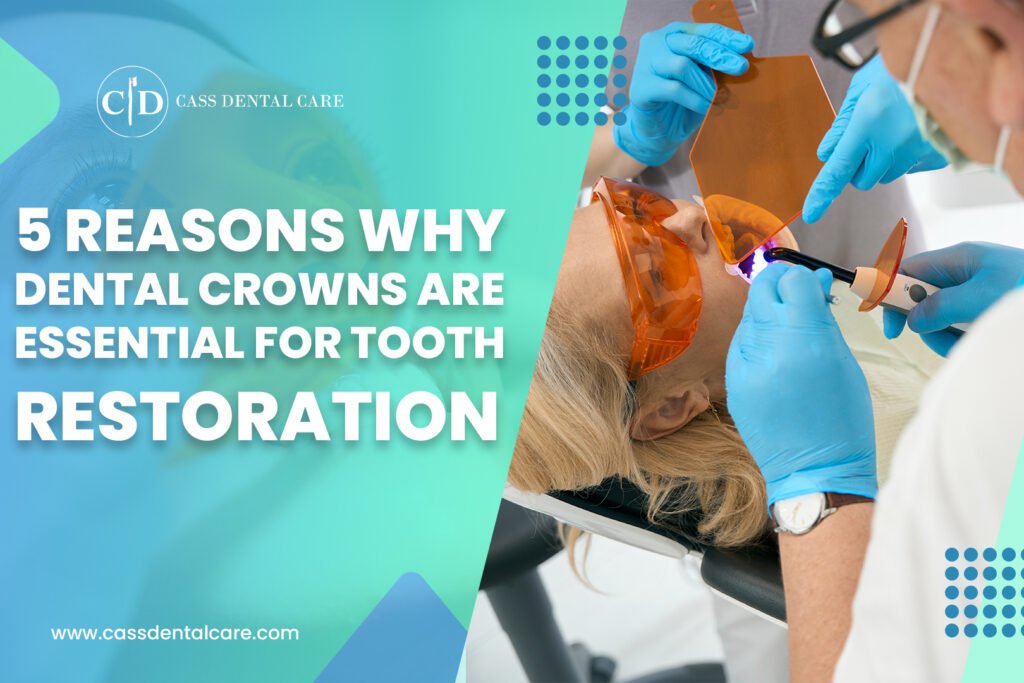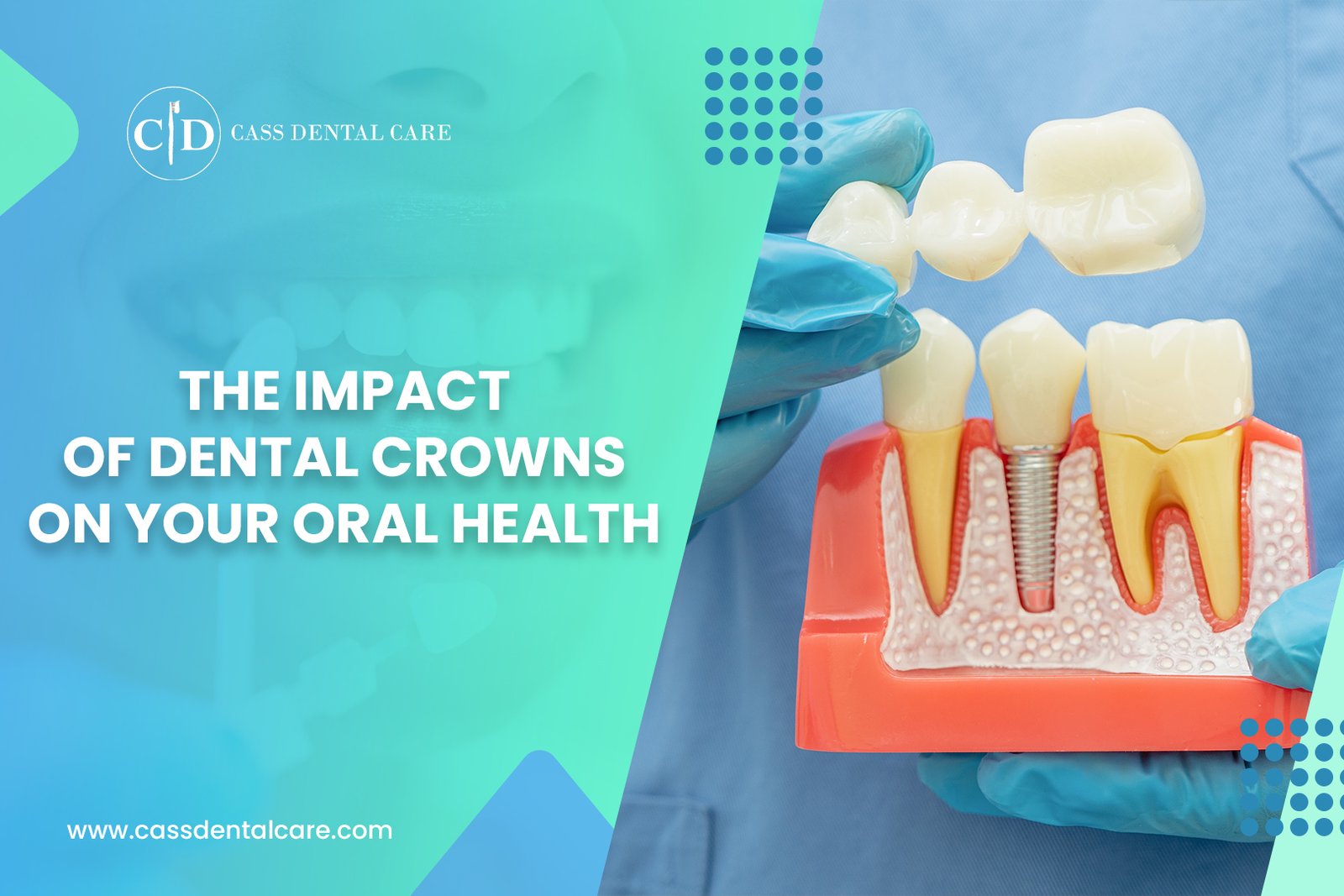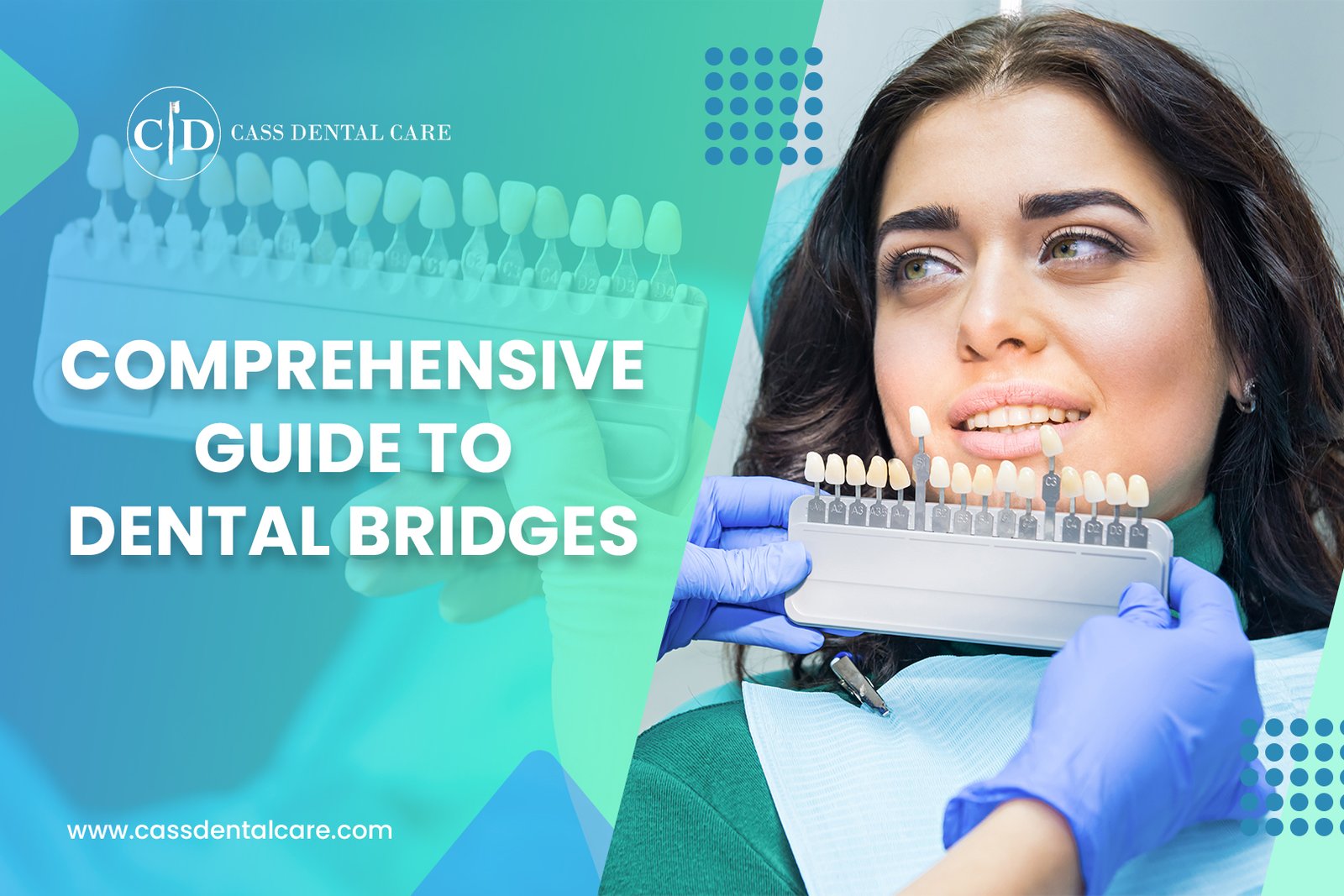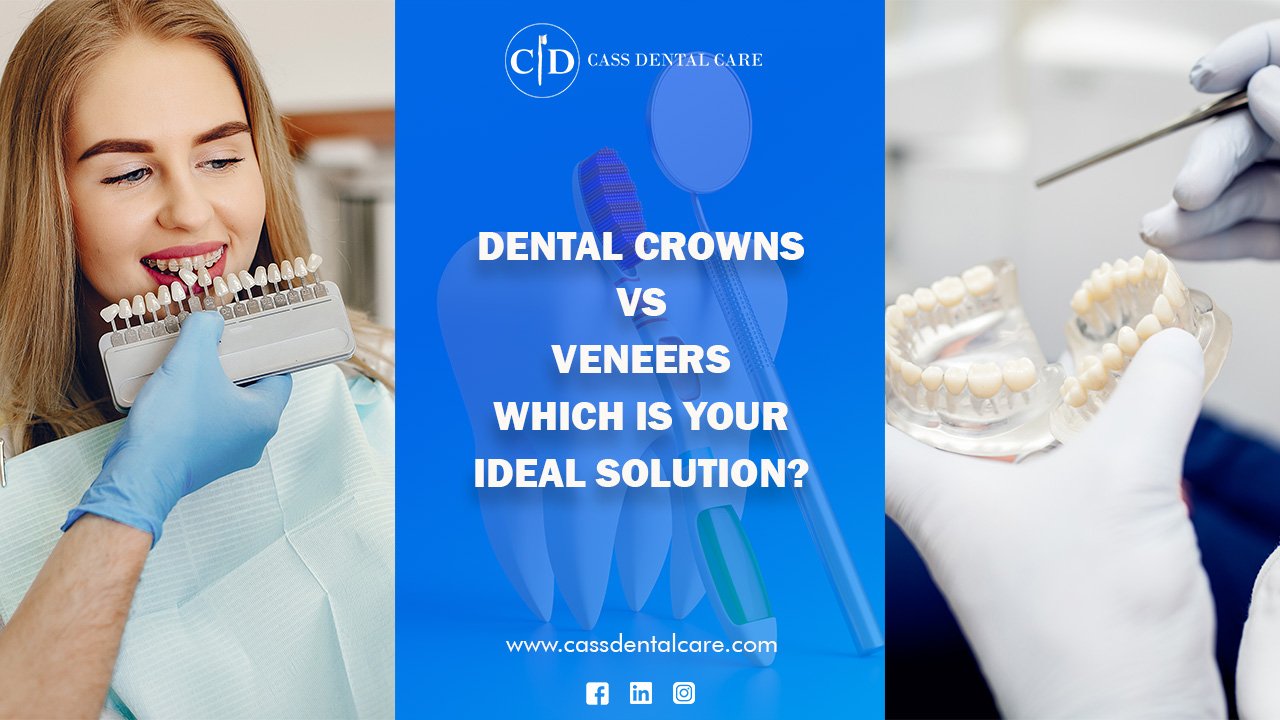Do not worry if you have broken or decayed teeth; you can get natural-looking teeth with dental crown repair solutions. Dental crowns are also mainly used for cosmetic dental treatments for those who want to restore their beautiful smile. This blog post will discuss the top 5 reasons dental crowns are essential for tooth restoration.
What are crowns for teeth?
A dental crown is a tooth-shaped “cap” put on top of a tooth to recover its shape and size, make it more robust, and look better.
When glued in place, the crowns cover the whole exposed part of a tooth above and below the gum line. In cosmetic dental treatments, crowns bring facial beauty.
Types of Dental Crowns
Permanent dental crowns that stay in place can be made of stainless steel, all metal (like gold or an alloy), porcelain fused to metal, all resin, or all clay.
Stainless Steel Crowns:
These are already made and mainly used as a temporary fix for permanent teeth. The crown covers the tooth or filling until a different kind of crown can be made to last for good. Stainless steel crowns are usually used on children’s teeth because they don’t need multiple visits to the dentist to be put in place. This saves money over custom-made crowns and the regular dental care required to protect a tooth without a crown.
Alloys:
Alloys with a lot of gold or platinum are used to make crowns and base-metal alloys like cobalt-chromium and nickel-chromium alloys. Biting and eating forces don’t hurt metal crowns; they probably last the longest in wear and tear. Also, metal caps break or chip very infrequently. Most people prefer something other than the shiny look or the high price of gold. Metal caps are a good choice for back teeth you can’t see.
Metal Crowns:
Unlike metal crowns, porcelain-fused-to-metal dental crowns can be color-matched to the teeth next to them. On the other hand, this type of crown wears down the teeth next to it more than metal or plastic crowns. The porcelain part of the crown can also chip or break off. Dental crown repairs are made of porcelain joined to metal to look the most like natural teeth, followed by crowns made of all ceramic. But the metal under the porcelain crown can sometimes show through as a dark line, especially near the gum line, even more so if your gums pull away from your teeth. You should get these caps for your front or back teeth or long bridges needing strength.
All-resin Crowns:
These types of teeth cost less as compared to others. They break more often than porcelain-fused-to-metal crowns and wear down faster.
All-ceramic:
All-ceramic or all-porcelain crowns match your teeth’s natural color better than any other type of crown, and they may be better for people allergic to metal. Crowns made of only clay can be put on both front and back teeth.
Reasons Why Dental Crowns Are Essential for Tooth Restoration
1. Restoration of Tooth Structure:
Dental crowns restore a tooth’s shape, size, and strength damaged by decay, fractures, or other dental issues. By encapsulating the entire visible portion of the tooth, crowns provide a protective barrier that prevents further damage and deterioration. This restoration helps the tooth regain its original form and function, allowing individuals to bite and chew confidently.
2. Protection Against Decay:
Decay can compromise the integrity of a tooth, leading to pain and sensitivity. Dental crowns act as a shield, covering the affected tooth and preventing the spread of decay. This protective barrier is particularly beneficial for teeth with large fillings, as it reduces the risk of fractures and maintains the tooth’s overall health.
3. Enhanced Aesthetics:
Beyond functionality, dental crowns contribute to the overall aesthetics of a smile. These crowns are crafted to match existing teeth’ natural color and shape, ensuring a seamless and natural appearance. Whether used for restoring a discolored tooth or improving the appearance of misshapen teeth, dental crowns play a crucial role in enhancing the cosmetic appeal of a smile.
4. Long-Term Durability:
Dental crowns are known for their durability and longevity. Constructed from high-quality materials such as porcelain, ceramic, or metal alloys, crowns can withstand the forces of biting and chewing for an extended period. This long-term durability ensures that individuals can enjoy the benefits of tooth restoration without worrying about frequent replacements.
5. Support for Dental Implants:
Dental crowns are an integral part of the dental implant process. When a tooth is lost, a dental implant often replaces the missing tooth root. A crown is then placed atop the implant to mimic the appearance and function of a natural tooth. This restores the smile and maintains the stability and alignment of surrounding teeth.
Why are you still waiting?
You can contact Cass Dental Care Dentists for your oral health if you need cosmetic dental treatments or emergency dental care.





